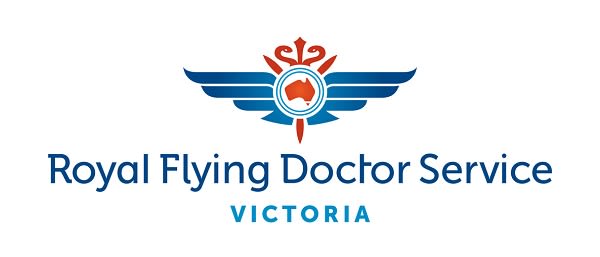Care when – and where – it counts
The Flying Doctor understands the importance of supporting Victorians in their own community.

When the World Health Organisation officially declared the outbreak of a global pandemic on Wednesday 11 March, 2020, no one could have imagined how our lives would come to change over the coming months and years.
Day by day, the world of every Victorian seemingly became smaller and smaller. First, international travel came to a standstill. Then, so did domestic travel. Before long, a ‘ring of steel’ was established within Victoria, effectively cutting metropolitan Melbourne off from the rest of our state.
Governments, schools, businesses and families scrambled to stay ahead of this highly unsatisfying domino effect, with the health care system forced to try and navigate this new world at lightning speed.
As a not-for-profit organisation servicing Australia’s rural and remote communities, the Royal Flying Doctor Service (RFDS) was always going to play an important role in our country’s response to the pandemic. And now, almost 23 months since the first case of COVID-19 was confirmed in Australia on Saturday 25 January, 2020, RFDS Victoria remains on the front line, ensuring all Victorians, no matter where they live, have equitable access to vital vaccines.
I
A history of care
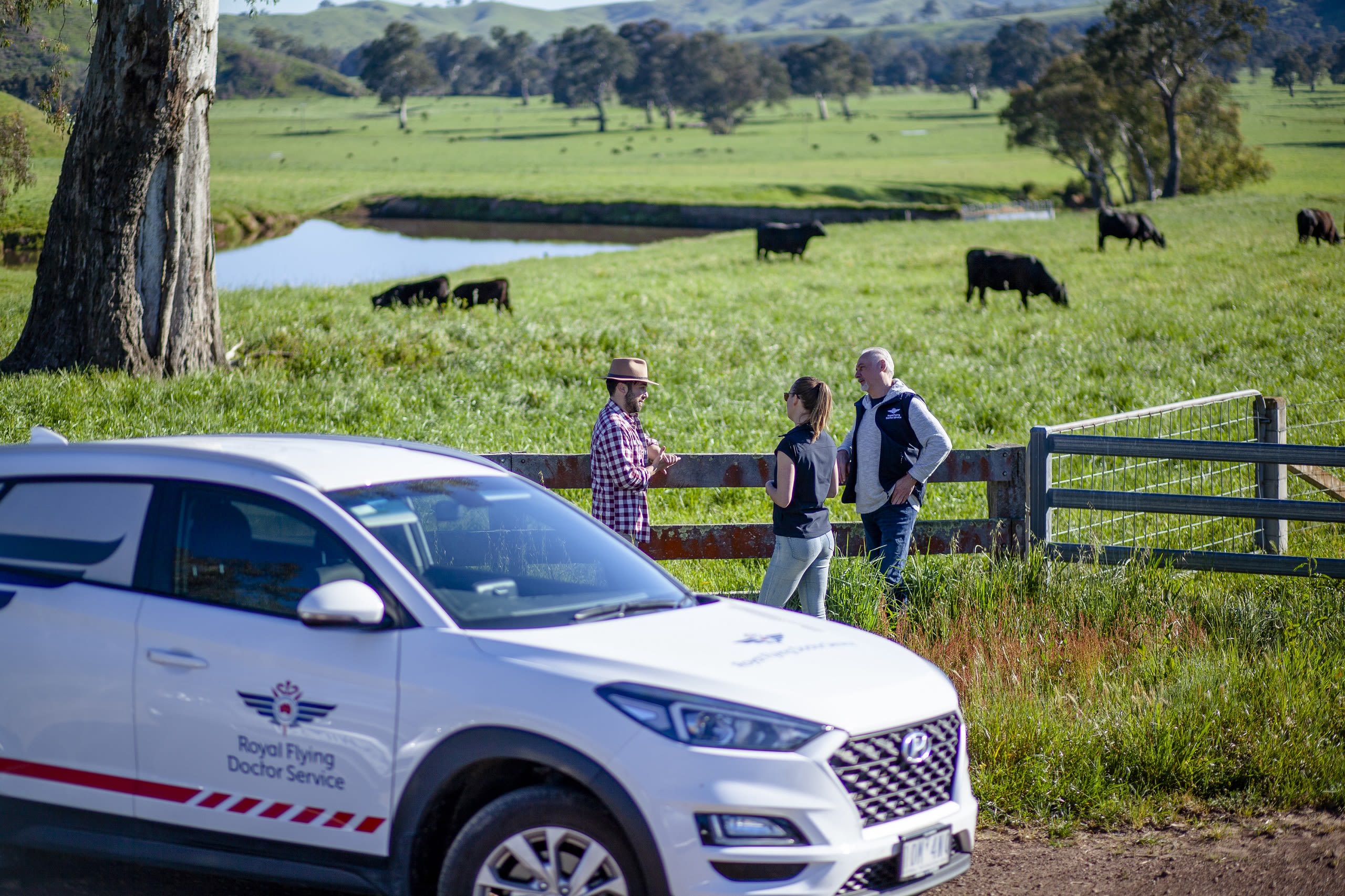
As anyone who lived through the Spanish Flu epidemic of the early twentieth century knows, the COVID-19 pandemic is far from the first time the world has faced a collective health emergency. What’s more, the Flying Doctor has a long history of protecting Australians during such emergencies. During the late 1960s, when a second wave of polio was sweeping through Western Australia, pilot and RFDS flight nurse Robin Miller was at the forefront of the country’s response. She recognised that while the polio vaccine had been available since the mid-1950s, many West Australians living in remote areas were still unvaccinated, and therefore highly vulnerable.
Combining her nursing and piloting abilities, Robin began a radical immunisation program, flying solo to isolated communities to deliver vaccine doses dripped onto sugar cubes. It was this distinctive process of vaccine administration that earned her the nickname, the ‘Sugarbird Lady’.
While Robin’s is undeniably an impressive story, it is not altogether unique. Over the years, countless RFDS doctors, nurses and health care professionals have shown the same dedication to our most vulnerable, including during the COVID-19 pandemic.
Right across the country, RFDS became involved in a number of COVID-19 vaccination clinics to help boost Australia’s vaccination rates in remote communities. Here in Victoria, we supported our local health partners at more than 40 pop-up clinics in nearly every pocket of the state. We went north to Robinvale and Irymple, west to Nhill, Goroke and Harrow, east to Cann River and Gelantipy and into many more towns in between, as we helped administer COVID-19 vaccines and assist at testing centres.
In August, we supported Goulburn Valley Health up in the community of Shepparton, with staff from our Shepparton and Bendigo Mobile Patient Care branches taking on various roles at the pop-up clinic, including administering vaccinations, checking patients and more.
Read more about this clinic here.
In September and October, we made our way to the Wimmera town of Nhill in north west Victoria to support the Ballarat Health Service and their Western Sub-Hub partners. At this clinic, we were not only able to vaccinate locals, including the towns large Karen refugee community, but due to the town’s proximity to the Victoria/SA border, we were able to provide vaccine access to numerous truck drivers who pass through Nhill.
You can read more here.
Also in September and October, we assisted Bendigo Health at multiple pop-up vaccination clinics in Robinvale, a town in the state’s north western corner where almost three-quarters of the community have a culturally and linguistically diverse background.
Read more here.
II
A community in mourning
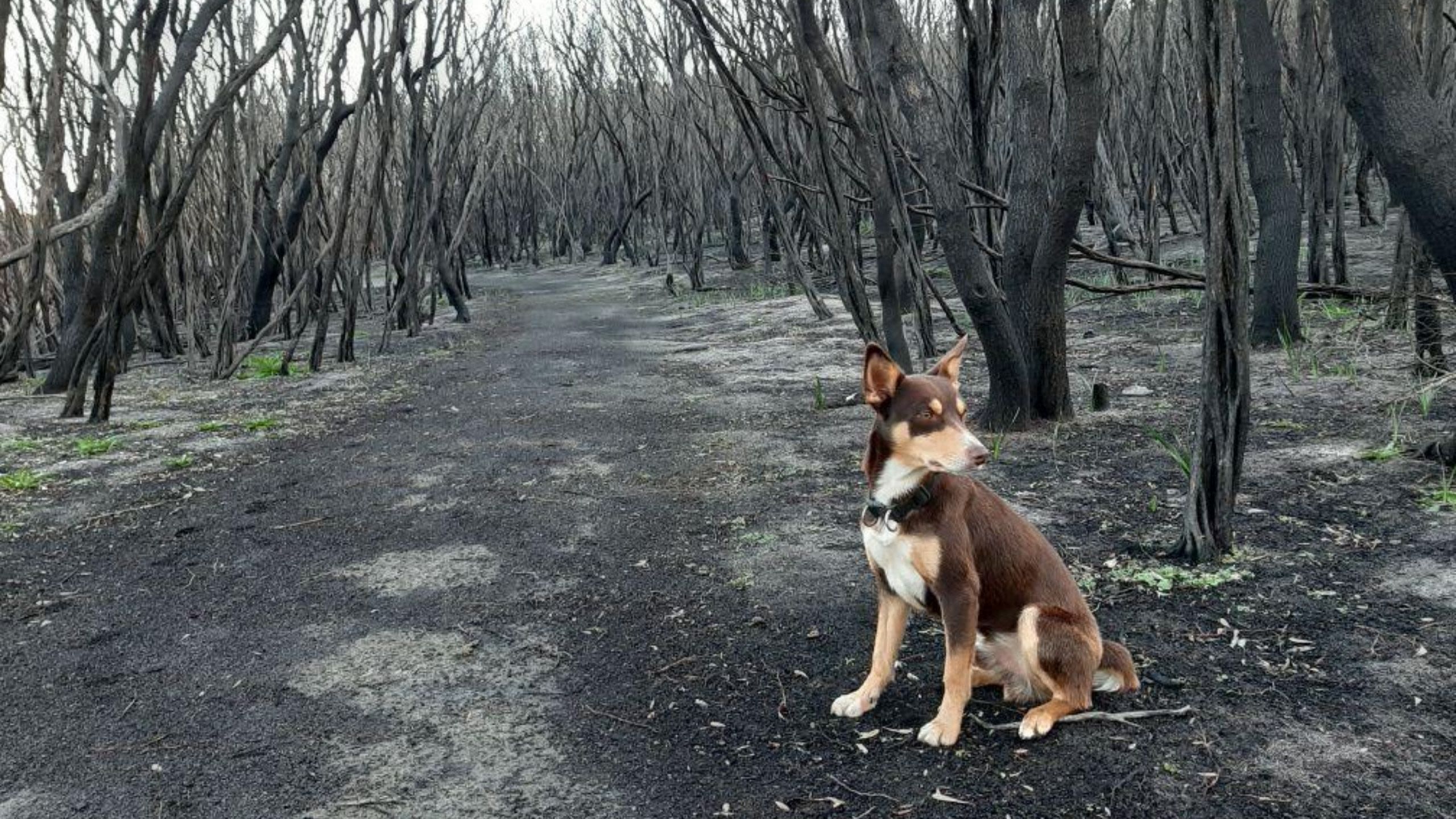
Nestled amongst rolling green hills, on the edge of the famous Snowy River National Park, the East Gippsland town of Buchan doesn’t immediately fit the brief of your stereotypical Flying Doctor community – there’s no red dirt, no burning desert, no surplus of snakes, sharks or plate-sized spiders. However, the beauty of this picturesque region hides an alarming reality.
Buchan lies within Victoria’s alpine region, and is therefore naturally very hilly. There's only one road in and one road out of town. When it's snowing in this area, locals need to put crampons on the wheels of their car as it can get very slippery, and the roads can be quite dangerous as they’re so windy. As a result, it can be rather difficult to access bigger towns, making Buchan a fairly isolated community.

This separation from big centres means that Buchan locals can’t easily reach their nearest hospital, which is located in Bairnsdale – and it’s even worse for the surrounding townships. For people in the town of Wulgulmerang, for example, it’s an hour and 10 minutes to Buchan, and then another 45 minutes on to the Bairnsdale Regional Health Service.
“We do have a doctor come in one day, every three weeks. And we have a range of other visiting services to the clinic,” says Anne Brewer, a registered nurse working at the Buchan Bush Nursing Centre. However, when emergencies happen or when specialist treatment is required, locals are more than 70km from help.
East Gippsland is located in the eastern-most pocket of our state,
and covers 31,740 square kilometres.
The town of Buchan sits near the centre of East Gippsland, on the banks of the Buchan River.
The population of the town is 236, according to the 2016 census.
The closest hospital to Buchan is the Bairnsdale Regional Health Service, which is located almost an hour's drive away.
From Bairnsdale, Melbourne is a further three and a half hour drive.
If access to specialised health care is required, Buchan locals have a very long way to travel.
In addition to its isolation, Buchan is also a town steeped in trauma. During the Black Summer bushfires of 2019/20, the community was devastated by the blaze that tore through the Buchan Valley. Twenty-four homes were lost in these fires, and tragically one life.
Anne and her husband were among those who lost their home on the night of 30 December, 2019. While Anne evacuated early that morning, her husband stayed behind to protect their house. At 3am the next day, Anne received the news that her house was gone and that her husband was seeking shelter at the recreation reserve, along with many other community members who had stayed behind. Soon after, Anne lost contact with the town, and those hours of not knowing what was happening and if everyone had survived were hardest of all.
Over the months that followed, the Buchan community banded together to rebuild and recover, but then, COVID-19 reached Victoria. Not only did this force community activities to halt once again – thereby further impacting the mental wellbeing of locals – but it also interrupted the construction supply chain, hampering the rebuilding of homes.
Then, in addition to all of this, Buchan and much of the East Gippsland region has also had to endure a particularly damaging flood season this year, as well as the bizarre occurrence of an earthquake this past September. Few communities have been so completely tested as Buchan, and yet when you venture into town, the resilience and strength of the people is still extremely palpable.
III
Flexing our workforce
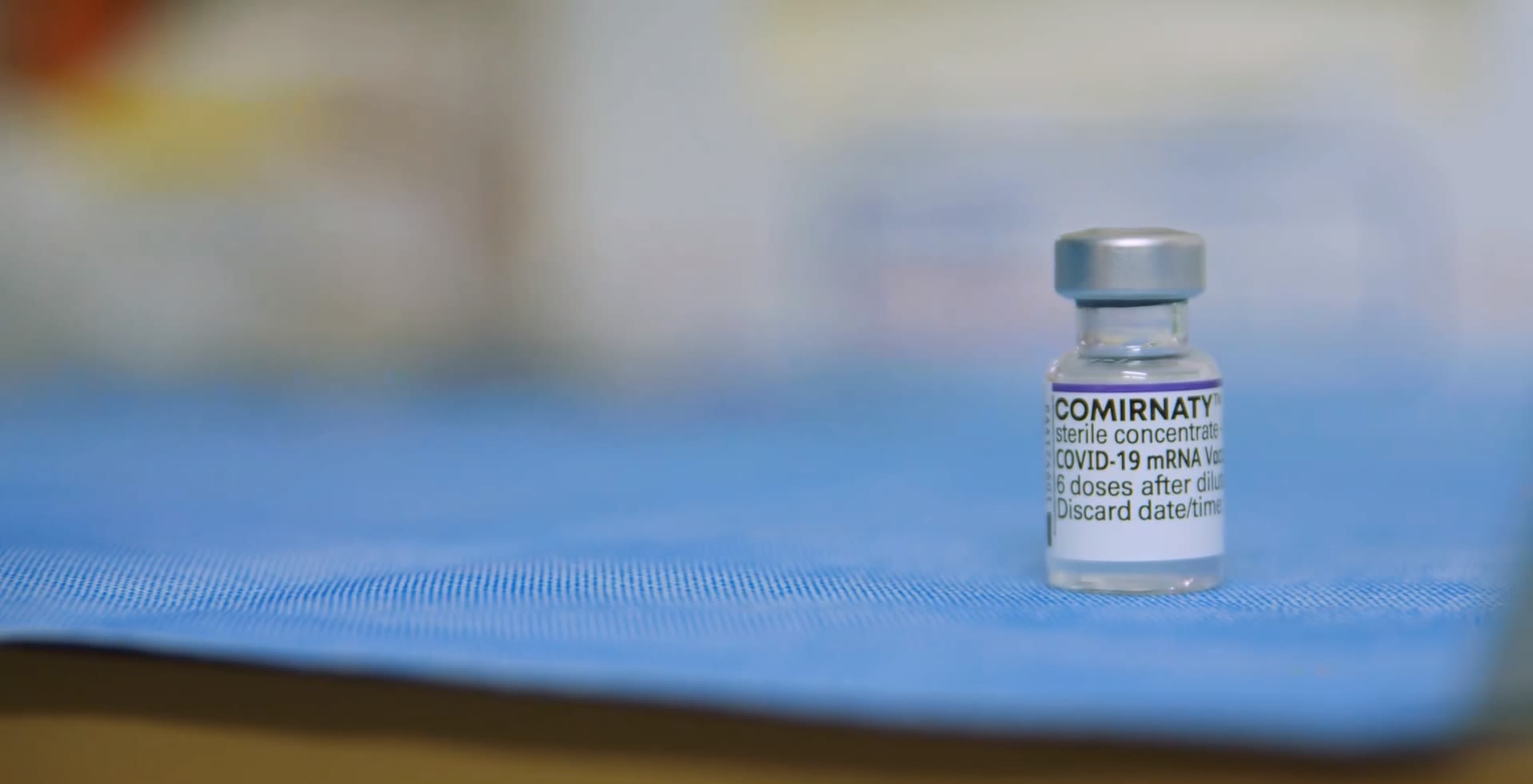
While in many ways the health care sector has been busier than ever since the outbreak of COVID-19, some services were forced to temporarily shut down. Our Dental service was one such casualty. However, adversity is known to breed creativity, and the pandemic in some ways presented as many opportunities for our staff as it did obstacles.
When RFDS Victoria travelled back to Buchan to provide locals with the COVID-19 vaccine in November, among the cohort of our staff who made the journey was Dannielle Dookhit. By trade, Dannielle is an oral health therapist working within our school dental program, but when her regular work halted, she was able to adapt her skillsets to meet the health needs of the community.
“Because of COVID-19, schools have been in lockdown for quite a few months, so we haven't been able to do any of our clinical work,” says Dannielle. “So instead of just doing nothing and sitting around, when the opportunity came up for dental practitioners to expand our scope and start doing vaccinating, I was really keen to participate in that program.”
In early September, legislation changed to allow allied health professionals to work in vaccination clinics.
“[The change allowed us] to diversify our skills and support the health care workforce to deliver the vaccines, as the state government needed to ramp up the rollout,” says Dannielle. “So after some training and a practical test, I was able to get out on the road and visit those smaller communities to provide the vaccine.”
Ian Fellowes is another Flying Doctor team member who was unexpectedly able to broaden his skillset this year. When an injury forced him to take time out from his normal job within our Mobile Patient Care (MPC) service, he eagerly put his hand up to work at the Buchan pop-up vaccination clinic instead.
“In a normal day with MPC – if there’s such a thing as ‘normal’ – I work in either the Sale or Bairnsdale branch from 7 o'clock in the morning and finish at about 5 o'clock in the evening. What happens in between is all part of the mystery of the job. It could be transporting a one day old, a 101 year old or a palliative patient, or going to someone's house and rescuing them off the floor, and everything in between.
“I’ve worked a lot of jobs, so this [vaccination clinic] is just adding another arrow in my quiver really, which I'm happy to do.”

While these pop-up clinics provided excellent opportunities for our staff to continue providing care during the pandemic, the clinics were also absolutely critical in allowing the Buchan community to access the vaccine.
“When [the government] initially mentioned the vaccine rollout, it was always going to be that we had to travel at least to Bairnsdale, which is nearly an hour's drive,” explains Anne Brewer. “We know with farmers and the like, getting them to town for an appointment is always challenging. If they go to town, they're looking for farming tools or whatever they need for the farm; they don't have time to sit around while the line’s an hour and a half or two hours long. It just won't happen.”
So, when the public health unit and the Flying Doctor offered to come into town, the Bush Nursing Centre was only too happy to help facilitate appointments. And by all accounts, the partnership has proven to be incredibly successful.
“The bush nurses themselves coordinate community members to participate in the program,” explains Dannielle. “They're very well organised, and they have had an extremely high uptake [of the vaccine], as the local community really trusts them because they're people that they know already.”
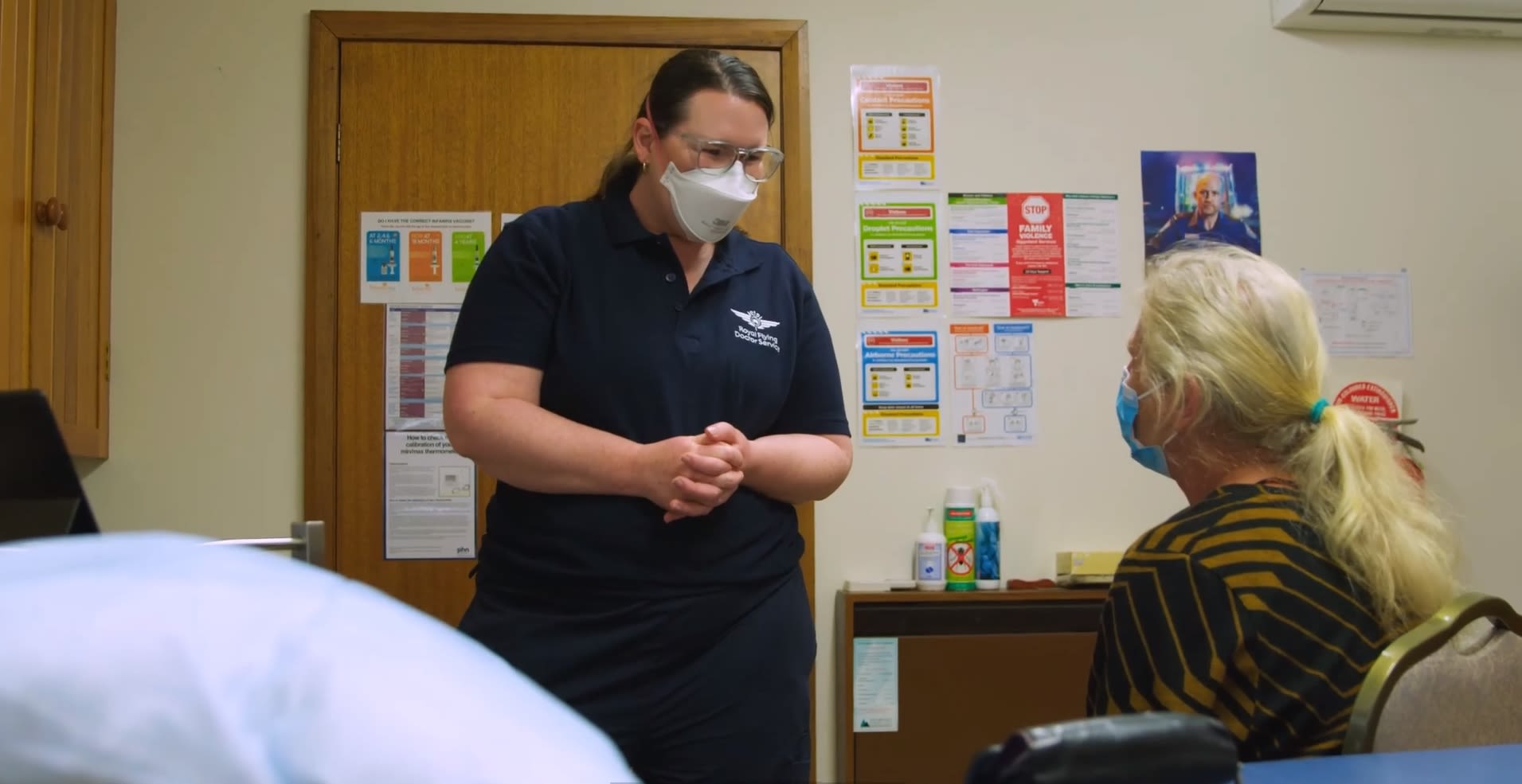
And because the Flying Doctor is a familiar name in Buchan – not just because of our history, but because we already operate a dental program and mental health services in the area – our team was able to seamlessly integrate with the existing health care professionals.
“My experience was that because the Flying Doctor is fairly established in these communities already, [and therefore] we have networks and relationships with local community health centres, it was very easy for us to just jump in and be an extra body in those teams that needed extra support as they are usually very understaffed,” says Dannielle.
“[Locals] know our uniform, they know the brand. They know that we're here to genuinely support the local community. So we've been very welcomed by both the bush nurses themselves and the local community members.”
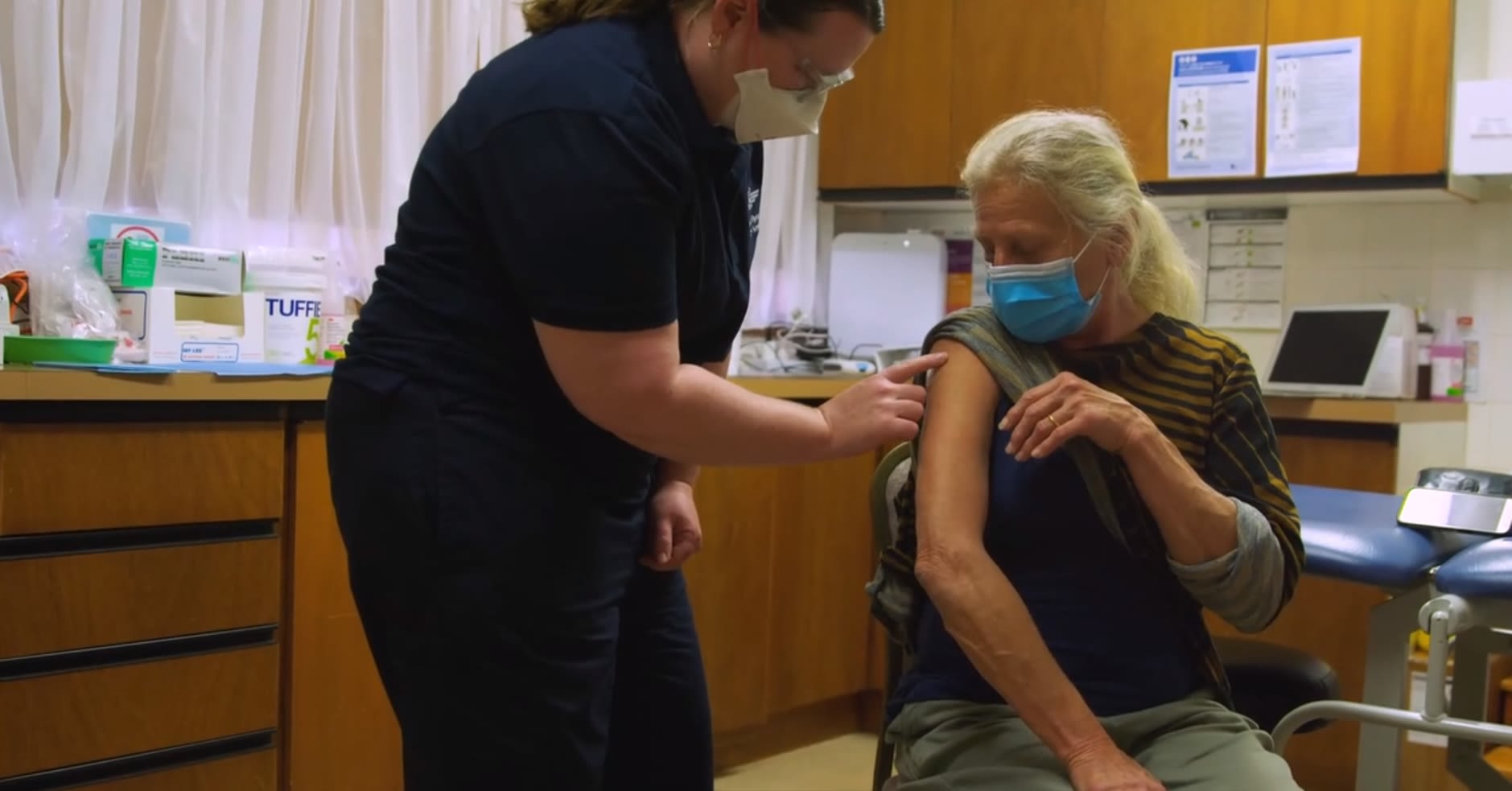
Like in many parts of Australia, there was some initial uncertainty in the Buchan community about the vaccine. However, by making it available locally, Anne believes they were able to offer both convenience and, even more importantly, a trusted local voice to talk through any concerns.
“There was a bit of hesitancy to start with, but bad publicity runs fast, good publicity hangs back. So there's been quite a bit of education around the vaccines, what they are, what they mean for people, and a little bit of a reality check: there are vaccines for measles, mumps, rubella, for example, that have had bad press, but you still give them to your children. So why wouldn't you consider protecting your children by protecting yourself, so to speak,” she says.
“On the whole, the uptake for this area has been really, really good. I think coming here [to the Bush Nursing Centre] does make a difference. They feel safe. They know the area. I think it helps too that our staff are vaccinated as well. So we've been able to say, ‘I've had the vaccine, that's how safe I believe it is’.”
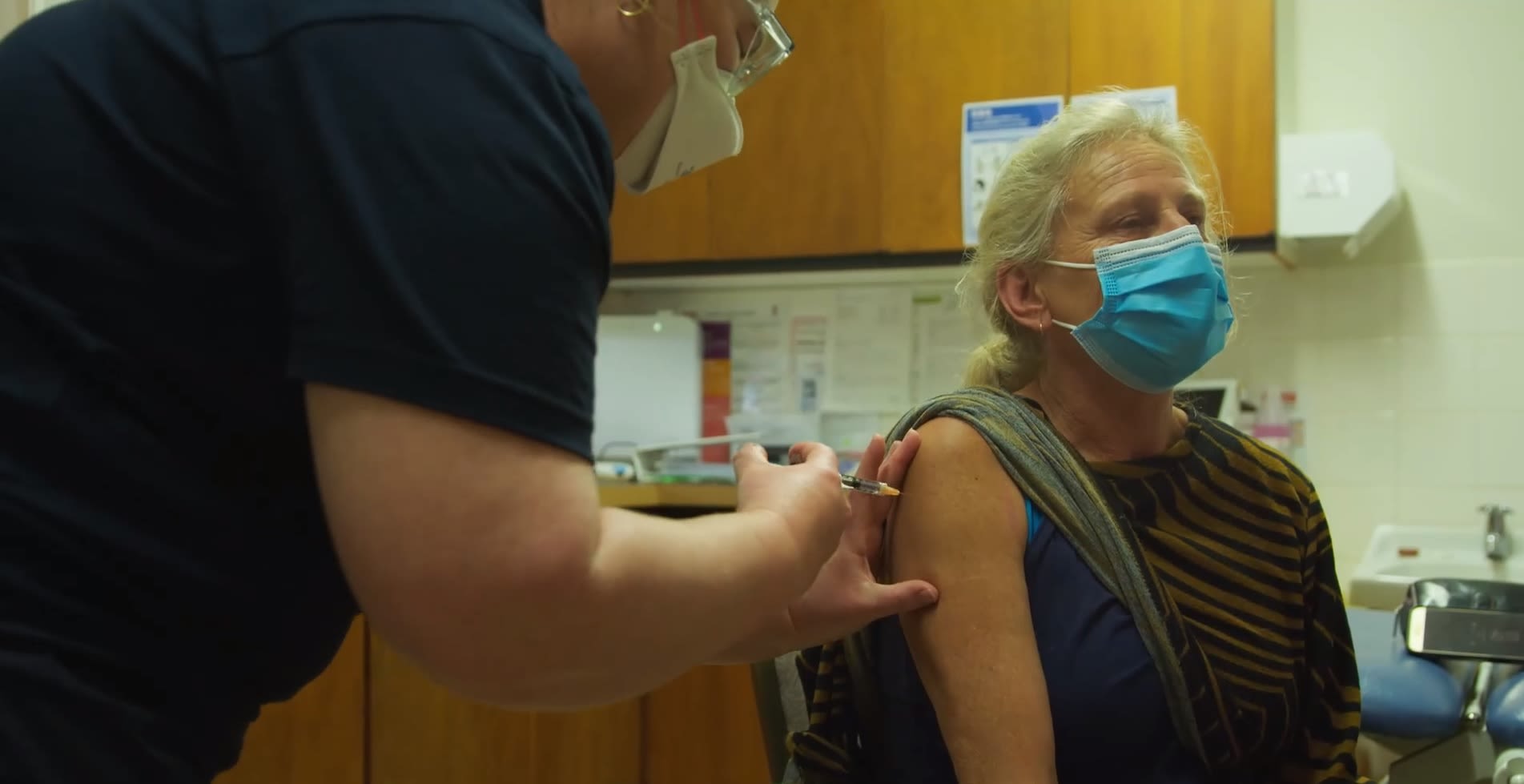
Community members Sandra and Ev agree, noting they perhaps wouldn’t have got the vaccine if it hadn’t been available locally.
“It’s really great that we’re able to have it here, it’s much more convenient. We know everybody here, so it’s more comfortable for us emotionally,” says Sandra. “It’s a really good partnership between the Flying Doctor and the Bush Nursing Centre and the community.”
Ev adds, “We have a lot of confidence in our nurses, and I think when it comes to things like the vaccination, it’s been so topical that I’m sure people have felt more inclined to come because it is a local service.
“If you have to go into [Bairnsdale], because of the distance, you will also take the opportunity to get a shop in. A day is taken up. It’s not ideal to have to take a whole day off to get something done that might take an hour normally.”
Ian also notes how grateful the community seemed to be for not having to take a lot of time out from “their normal lives”.
“[The clinic] was very helpful for them, and it encouraged them to get the vaccination because it didn’t take anything extra out of their life.”



IV
The power
of strong partnerships
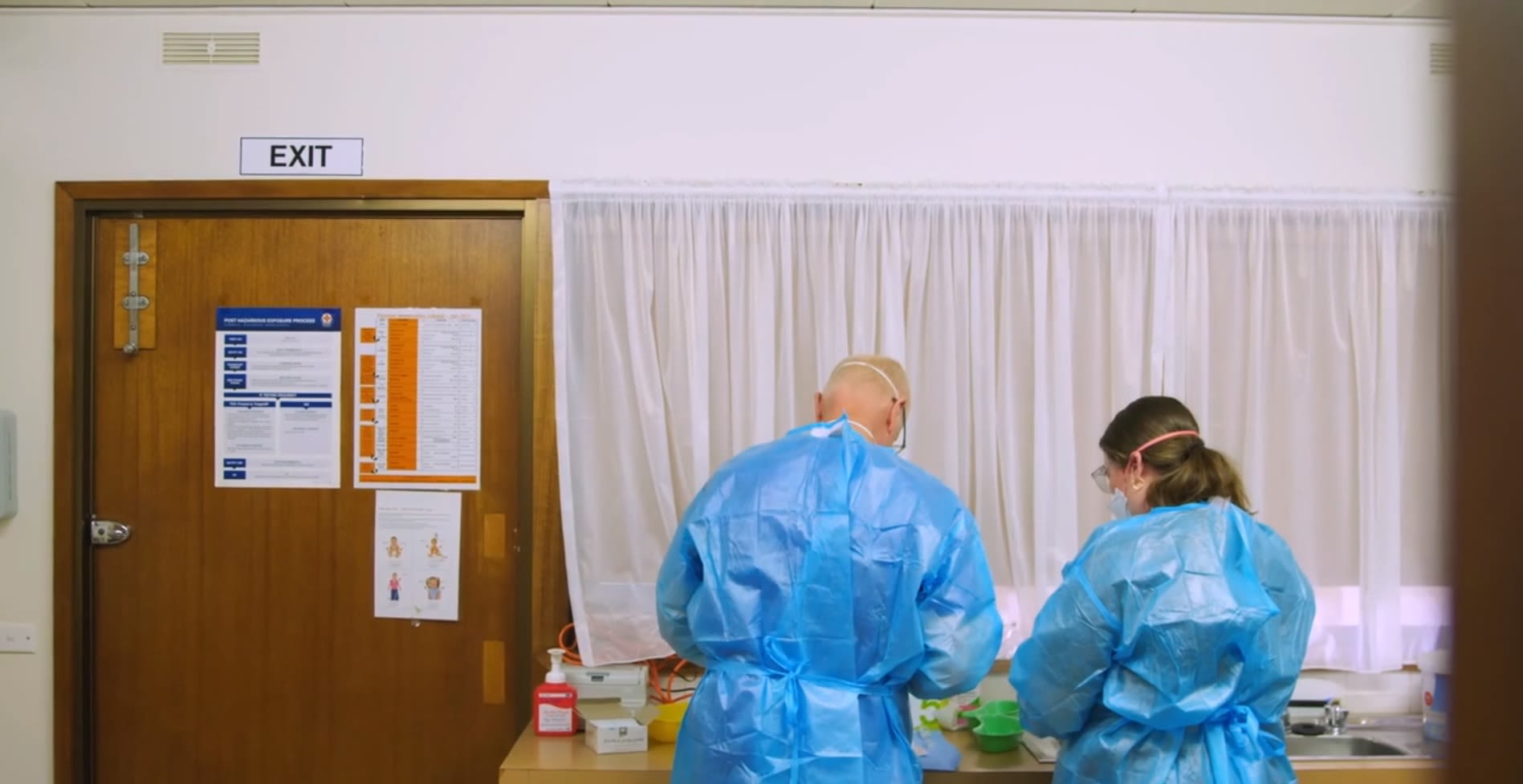
This pop-up clinic in Buchan is only one example of the many clinics RFDS Victoria has supported over the past 12 months, but the success of every clinic has been the same. This is because building strong, mutually beneficial partnerships is at the core of what we do at RFDS Victoria, day in, day out.
Much of the Flying Doctor’s success is based on partnering with local health services to tap into local knowledge and community trust. In many cases, our role is to offer an area of expertise, to fill gaps or provide further support in times of need.
“[The Flying Doctor] doesn’t come in and take over. They will work alongside us,” says Anne. “It's them assisting every step of the process.”
And for communities like Buchan, our commitment to this type of localised service model is essential, as it means the town can rely on us for continuity of care.
“There are a lot of services that do come in, and they're here and then they're gone,” says Anne, noting that this is where a lot of community distrust in external services can stem from. “If [these services] are going to be here, they need to be here long term. It's one of the question I ask counsellors if they're coming in and want to provide a service: Are you here for five minutes, or are you here for five years? And often they'll say my contract finishes in six months. Well, I'm not interested. If you're going to be here offering psychology services, we need to know that you're here for long enough to actually identify the patients and treat them and have an outcome – not come, get them halfway there and then dump them.”
As the Flying Doctor is committed to the long term health of the communities we serve across Victoria, our services are designed with this sentiment in mind: we operate under a sustainable business model, ensuring that our services are impactful now and into the future.
While almost 23 months have passed since that first case of COVID-19 was confirmed in Australia, there is still no definitive finish line in sight for the pandemic. The world may be opening back up, with interstate and international travel no longer things of memory, but the virus and its impact will be present in our daily lives the foreseeable future. However, whatever the New Year brings, our mission will remain the same as it always has: to ensure that great health care is accessible to all, no matter where you live.
Watch the full story below

